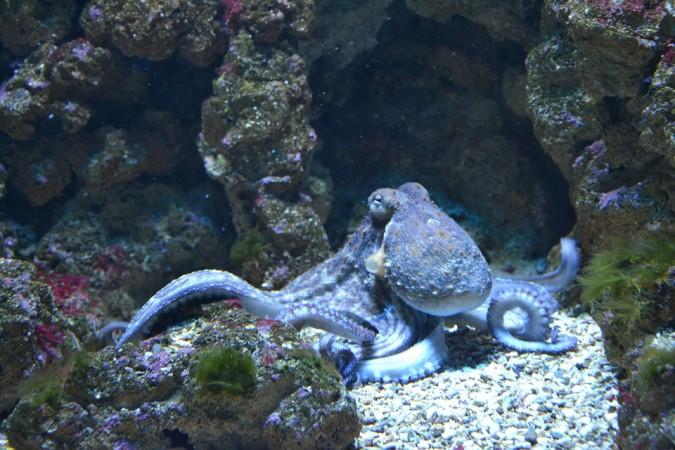
Scientists last year discovered an underwater city of octopuses and it has baffled them so much because the creatures are previously thought to be solitary ones. More than that, they wondered how they missed it for so many centuries.
The habitat of the small octopus city in Jervis Bay on the coastline of eastern Australia, named aptly as Octlantis, resembling the ancient city of Atlantis thought to have been lost under the sea.Finding Atlantis has remained elusive but not this underworld city of octopus species (Octopus tetricus)
How is the city?
According to a research published in Marine and Freshwater Behaviour and Physiology, Octlantis has dens made out of piles of sand and shells. This city, which measures 18 by 4 metres (59 by 13 feet), lies 10 to 15 metres (33 to 49 feet) under the water.
Around 15 cephalopods live in Octlantis. According to Science Alert, the octopus city is not an easy place to live in. Researchers observed that the "citizens" chase away other unwelcomed octopuses and sometimes evicts one of their own from dens.
"These behaviours are the product of natural selection and may be remarkably similar to vertebrate complex social behaviour... This suggests that when the right conditions occur, evolution may produce very similar outcomes in diverse groups of organisms," said David Scheel, lead researcher from Alaska Pacific University, according to Quartz.
However, this is not the first time that researchers are discovering something amazing like this. In 2009, a similar site was discovered, which was some kind of Octopus Fight Club.
Though these new findings prove the fact that these creatures are not loners, mystery still prevails about the numbers of such octopus cities and how they came into being. Scientists have also not found any particular object around which these octopuses tend to settle.
"At both sites, there were features that we think may have made the congregation possible – namely several seafloor rock outcroppings dotting an otherwise flat and featureless area," said Stephanie Chancellor from the University of Illinois at Chicago, as reported.
Another thing that struck the researchers was that such congregation attracted predators. However, they could not explain why the octopuses, which generally come together only to mate, would choose to mix together.








